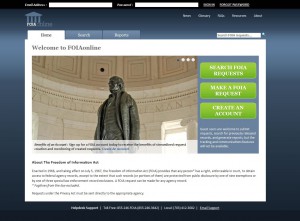Civil War-era Pension Records: An OGIS Case Study

Wounded soldiers recover in a Civil War hospital in the early 1860s. A combination of medical care and their cheerful demeanors demonstrated in this Mathew Brady photo may have ensured that some lived long enough for Prof. Costa’s research project. (ARC 524777)
When University of California–Los Angeles economics professor Dora Costa started looking at aging processes and extreme longevity, she knew military files of Civil War veterans would be crucial to her research. Costa planned to compare medical records and life histories of Civil War veterans with present-day veterans’ records for soldiers who lived to be at least 95 years old. If Costa and her team can better understand how aging processes change over time, they can better understand aging generally.
The project – which includes 12 universities and has spanned more than 20 years – is funded by a Federal grant from the National Institute on Aging, part of the National Institutes of Health. For her part, Costa needed to gather about 1,000 Civil War veterans’ files to ensure a large enough sample size. While the records are physically stored in Federal Records Centers around the country, run by the National Archives and Records Administration (NARA), the records remain under the control of the Department of Veterans Affairs (VA).
In March 2010, Costa filed a Freedom of Information Act (FOIA) request with the VA asking for the 1,000 records by name of the veteran, explaining that she was a university researcher working on an educational research project. The VA responded that, pursuant to its standard agreement with the Federal Records Centers to pay the labor costs associated with processing records requests, it would cost $50 per hour to process the request. What’s more, the average time for each record is one hour. Costa was floored by the VA’s $50,000 estimate. She wrote back and explained that she had worked with NARA to pull historical military records before and had not encountered such a policy. She filed a FOIA appeal and the VA affirmed its action.
VA regulations allow the agency to charge the direct costs of responding to a request; however, the VA did not address Costa’s requester status or whether she might qualify for a preferred requester category.
The parties were at an impasse. Costa needed the records for her research and didn’t see why these costs would come up when she had previously obtained records stored at NARA facilities without such expense. The VA could process the request, but would get a hefty bill from NARA for its labor – and if the VA couldn’t pass it on to the requester, as its regulations allow, the agency would be out 50 grand. A tough spot all around.
In May 2010, Costa called the Office of Government Information Services (OGIS) and asked for help. “I was running into a brick wall with the VA,” she said. It took nearly two-and-a-half years, but OGIS was able to work with the VA, NARA and Costa to resolve the fee issue, locate records around the country and get copies to Costa and her team.
At OGIS’s request, the VA reviewed the fee category and determined that Costa qualified as an educational requester. (In the end, the VA waived all fees entirely because of the length of time involved.) Next, OGIS worked with Costa and the VA to identify the records sought by using VA and NARA records databases. Nine Records Centers from Seattle to St. Louis had the records Costa sought access to; staffers pulled and copied the files and sent them over to the VA. The VA reviewed the records for names of any possible living beneficiaries and sent the records to Costa and her team in October 2012.
“Your involvement made a huge difference,” Costa told OGIS.
The request was filled thanks to the collaboration and assistance from the professionals at the VA, NARA and the Federal Records Centers across the country. OGIS kept the ball moving, giving the occasional prod when needed, but it was the perseverance of the folks in the agency trenches that got this request processed. They made a plan to locate the records using sometimes-outdated databases, worked to pull the files, copied the delicate pages and reviewed them line-by-line.
And in the end, 21 big boxes of records in Costa’s UCLA office will ensure some longevity to this project.
Posted by Corinna Zarek on November 19, 2012, under About OGIS, Best practices, OGIS Case Study.
Comments: none







